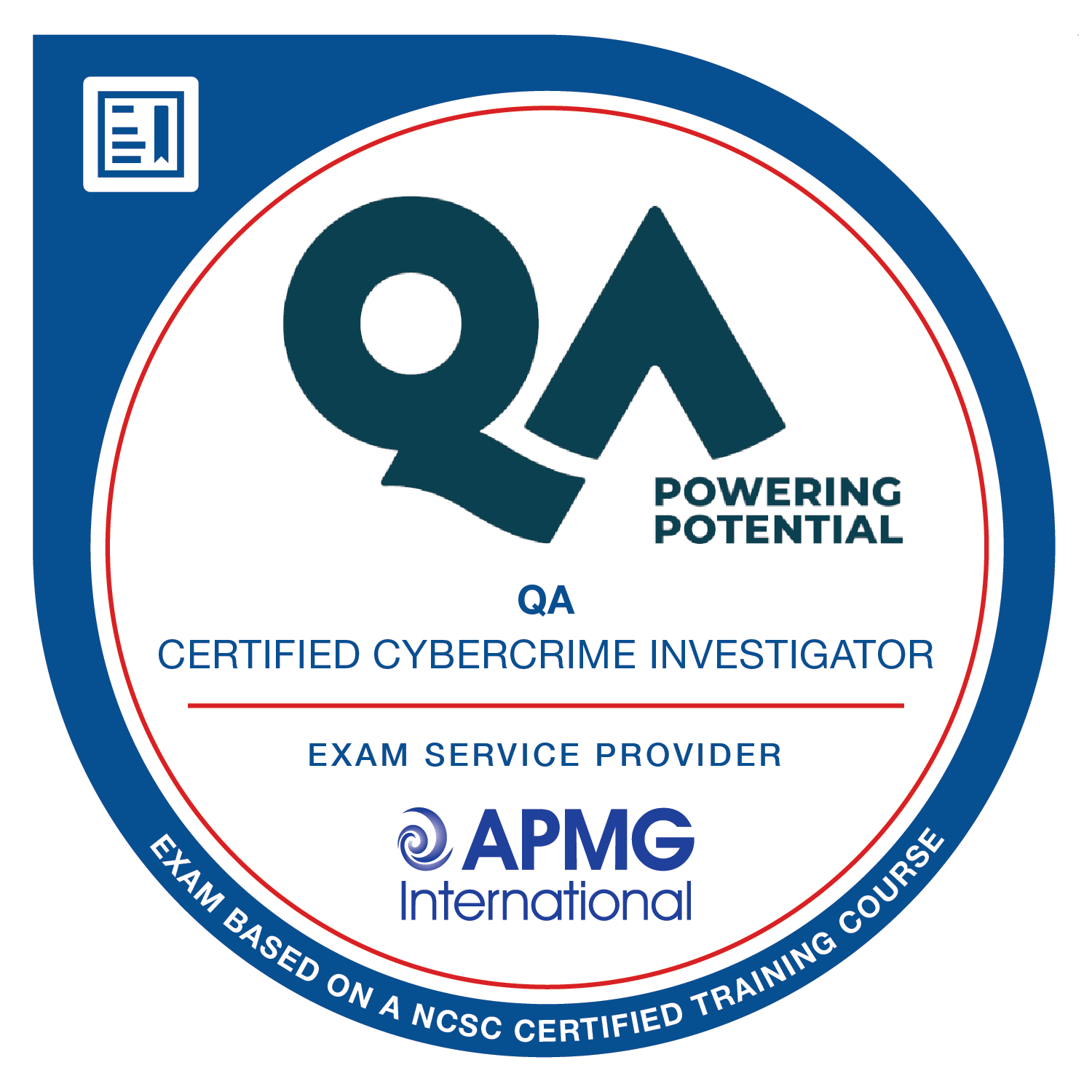Outstanding Cyber Security Training/Awareness Initiative
NPCC National Cybercrime Programme
 The NPCC Cybercrime Training Programme provides police forces in England and Wales with the skills needed to be able to respond to a report of cybercrime and fully investigate any criminal activity, prosecute offenders where necessary but also divert individuals on the cusp of criminal activity on to productive paths. The Programme gives staff the technical skill to advise and protect individuals and organisations in cyber security to help better protect themselves against cybercrime.
The NPCC Cybercrime Training Programme provides police forces in England and Wales with the skills needed to be able to respond to a report of cybercrime and fully investigate any criminal activity, prosecute offenders where necessary but also divert individuals on the cusp of criminal activity on to productive paths. The Programme gives staff the technical skill to advise and protect individuals and organisations in cyber security to help better protect themselves against cybercrime.
Course overview
The NPCC cybercrime pursue course is not going to teach delegates how to be an investigator, what it will do is show them how to take those investigative skills and apply them in the cyber space. This course has its own NCSC accredited Cybercrime Investigator exam.
Over the five day delivery of this National Cyber Security Center (NCSC) accredited course, you will learn how to detect an attack, how to handle it, how to trace and acquire the evidence, investigate, analyse and re-construct the incident. We then lay the groundwork for malware analysis by presenting the key tools and techniques malware analysts use to examine malicious programs.
The course is suitable for officers and staff who:
- Have successfully completed the NPCC Cybercrime Computing and Networking Foundation Course
Learning outcomes
You will learn how to detect an attack, how to handle it, how to trace and acquire the evidence, investigate, analyse and re-construct the incident. The course then lays the groundwork for cybercrime analysis by presenting the key tools and techniques used to examine and investigate malicious programs.
Course modules
Module 1 – Soft Skills and Incident Handling
- Engagement Lifecycle Management
- Incident Chronology
- Record Keeping, Interim Reporting & Final Results
- Threat Assessment
Module 2 – Core Technical Skills
- IP Protocols
- Network Architectures
- Common Classes of Tools
- OS Fingerprinting
- Application Fingerprinting
- Network Access Control Analysis
- Cryptography
- Applications of Cryptography
- File System Permissions
- Host Analysis Techniques
- Understanding Common Data Format
- Exercise - Reviewing HTTP and HTTPS traffic using a network analyser
- Exercise - Identifying Network Connections with netstat
- Exercise - Password cracking using NMAP
- Exercise - Analysing file permissions in Linux
Module 3 – Background Information Gathering & Open Source
- Registration Records
- Domain Name Server (DNS)
- Open Source Investigation and Web Enumeration
- Extraction of Document Meta Data
- Community Knowledge
- Exercise - Using DNSrecon to enumerate a website
- Exercise - Performing Google dorking to gain information about a target
- Exercise - Gathering intelligence on domains using OSINT-spy
- Exercise - Using intelligence tools to monitor transactions and crypto abuse
- Exercise - Using OSINT tools to investigate IP addresses
Module 4 – Network Intrusion Analysis
- Network Traffic Capture
- Data Sources and Network Log Sources
- Network Configuration Security Issues
- Unusual Protocol Behaviour
- Beaconing
- Encryption
- Command and Control Channels
- Exfiltration of Data
- Incoming Attacks
- Reconnaissance
- Internal Spread and Privilege Escalation
- False Positive Acknowledgement
- Exercise – Examining PCAP data
- Exercise – Examining torrent traffic
- Exercise – Examining Apache Logs using Excel
- Exercise – Examining a large firewall log dataset
- Exercise – Performing social engineering attacks
Module 5 – Analysing Host Intrusions
- Host-Based Data Acquisition
- Live Analysis Laboratory Set-up
- Windows File System Essentials
- Windows File Structures
- Application File Structures
- Windows Registry Essentials
- Identifying Suspect Files
- Storage Media
- Memory Analysis
- Infection Vectors
- Malware Behaviours and Anti-Forensics
- Rootkit Identification
- Malware Analysis
- Exercise - Capturing and examining memory artefacts
- Exercise - Examining memory artefacts on a live machine emails
- Exercise - Examining external media, browser, account usage and emails
- Exercise - Examining Windows artefacts in a corporate espionage case
- Exercise - Detecting exploit kits within a network
- Exercise - Creating malware to deploy to victims
- Exercise - Identifying rootkits using chkrootkit
Module 6 – Reverse Engineering Malware
- Windows Anti-Reverse Engineering
- Functionality Identification
- Windows NT Architecture
- Windows API Development
- Binary code structure
- Cryptographic Techniques
- Processor Architectures
- Windows Executable File Formats
- Hiding Techniques
- Malware Reporting
- Binary Obfuscation
- Behavioural Analysis
Exam details
End of Course Exam
National Cyber Security Center (NCSC) Certified Training Exam:
- Online proctored exam is taken post course
- Duration - 90 minutes
- Questions 60, multiple choice
- Passing score of 60%
- Digital badge

